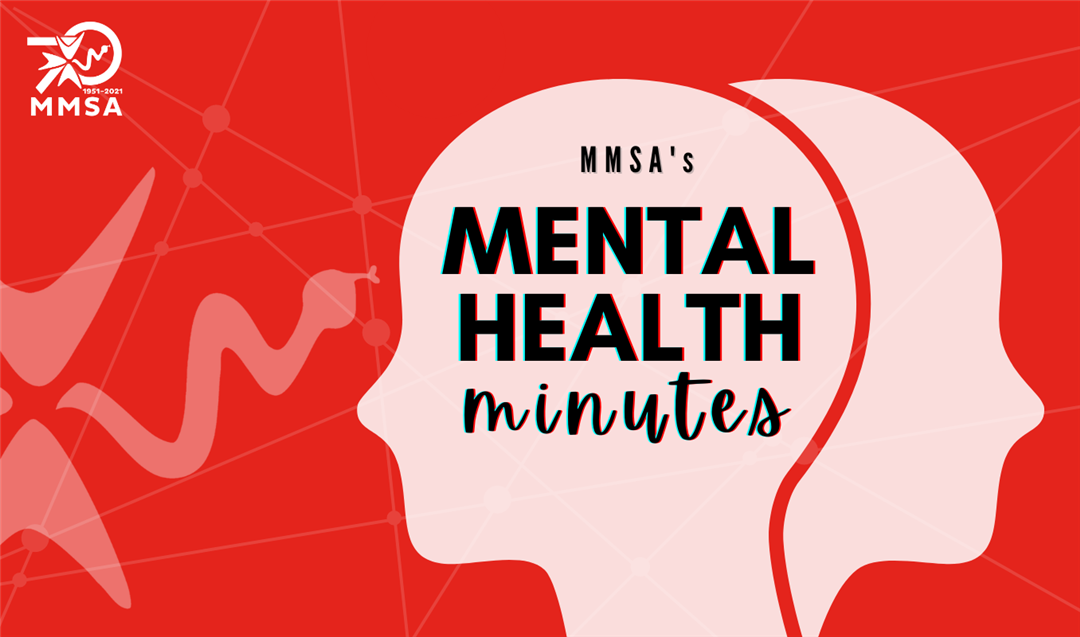What is an eating disorder?
Many people commonly associate eating disorders with the adoption of abnormal eating habits in order to lose weight. Whilst this may play an important role in the development and manifestation of various eating disorders, it is only the tip of the iceberg. Eating disorders are classified as mental disorders, and such irregular eating habits could also lead to the development of serious and potentially life-threatening medical conditions, such as organic failure. Individuals with an eating disorder evaluate their own self-worth through their figure and weight, and depending on the type of eating disorder, each individual develops specific eating habits in order to obtain their desired physical appearance.
There is a wide spectrum of eating disorders, the most common being:
- Anorexia Nervosa
People with anorexia nervosa are constantly self-conscious of appearing physically unattractive an overweight, to the extent that they choose to starve themselves in order to lose weight and look the way they want to. Eventually, this results to the person becoming underweight, which is seen as an achievement. There are various ways by which anorexic patients attempt to lose weight. This could include fasting or even resorting to diet pills, diuretics, laxatives, making oneself sick, over-exercising or medication abuse (e.g. insulin) [1].
Anorexia nervosa is most prevalent among young individuals, especially in females. However, the number of cases of anorexic males is on the rise, with 1/3rd of anorexia patients being males. [4,5]
- Bulimia Nervosa
This eating disorder is characterised by recurrent episodes of binge eating, which is the impulsive consumption of large portions of food in a relatively small amount of time. This leads to a compensatory behaviour to make up for the binge eating, including fasting, excessive exercise, making oneself sick etc.
Unlike in anorexia nervosa, where people are usually underweight, individuals with bulimia nervosa can range from being underweight, overweight or falling within the normal weight range [1].
- Binge Eating Disorders
Binge eating is characterised by frequent episodes of uncontrollable eating of large amounts of food within a short time frame. Such binges tend to occur over 3 months minimum, at least once a week.
Unlike bulimia, people with binge eating disorders to not attempt to lose weight to compensate for eating copious amounts of food. As a result, most people with this disorder tend to be overweight or obese and end up feeling guilty and ashamed about their actions as well as their appearances.
Like in anorexia, binge eating disorders tend to affect women more commonly than men, however such disorders tend to present at a later stage in life [1].
Another emerging eating disorder is orthorexia. This involves the preoccupation of maintaining a healthy lifestyle and eating healthy. Here it is not the quantity of food that matters, but rather the quality of food. The driving forces behind the development of orthorexia are undetermined till this day. However, studies have shown that particular personality traits and occupational factors play a role in the development and manifestation of this eating disorder.
Do I have an eating disorder?
It is crucial to know the physical, behaviour and psychological signs indicative of an eating disorder in order to determine whether yourself, or others, should seek help.
Physical warning signs include:
- Changes in weight, whether it is weight gain or weight loss.
- Changes in menstruation patterns.
- Fainting / lethargy
- The development of swelling of the cheeks or jaw.
- Callus formation on the knuckles.
- Dental discoloration due to continuous vomiting.
Behaviour warning signs include:
- Dietary behaviours such as calorie counting or fasting. This can also include changes in food preferences such as the avoidance of fatty foods or insisting they don’t like certain foods as a reason to cut them out of their diet.
- Binge eating.
- Intentional vomiting or laxative use. This can be noted by the person going to the bathroom during or exactly after a meal.
- Excessive exercise habits. This can be seen in individuals who exercise even when hurt or when the weather does not permit outdoor training.
- Avoidance of eating meals, especially when in a social setting. People commonly skip meals in the company of others, saying that they have already eaten.
- Lying about the amount or type of food consumed.
- Behaviour related to body shape and weight. This could involve intrigue in weight-loss websites, books or magazines. People with eating disorders also tend to constantly check their body in the mirrors and weigh themselves on a regular basis.
Psychological warning signs include:
- Mental pre-occupation related to food, body shape and weight monitoring.
- Discontent with their body image.
- Body dysmorphia, a condition in which one cannot stop thinking negatively about one or more parts of their appearance
- Sensitive responses to comments from other about their appetite, eating habits or figure.
- Increased anxiety close to meal times and associated depression or irritability.
- Low self-esteem due to the development of a negative opinion about their appearance
There are also Eating Disorder questionnaires that can be used to determine whether you have an eating disorder. Such questionnaires tackle the 4 main aspects of an eating disorder: restraint, and concerns about body shape, weight and eating. They also account for more specific symptoms such as laxative misuse, self-induced vomiting as well as episodes of binge eating. [1,3]
What can I do if someone I know is suffering from an eating disorder?
With eating disorders, and any other mental health disorders, the first step is to establish whether you are knowledgeable enough to guide them to seeking help.
It is important to let that person know that you are there to listen to their problems openly and without judgement. This will let that person know that you genuinely want to support them through their problems and would create a ‘safe space’ where they can open up emotionally. On hearing their thoughts and feelings, one should empathise with the person and show them that it is OK to talk about it and to be understood. It is also important to give the person ample time to discuss their feelings and thank them for opening up to you about their experiences. It is a great struggle for individuals with eating disorders to reveal the looming thoughts and worries, and they would appreciate your actions even more.
If you think that person needs to seek help, there are various professionals and resources that are willing to help individuals deal with their eating disorder and other mental health issues.
In summary:
- Approach the person, assess and assist with any crisis
- Listen and communicate non-judgementally
- Give support and information
- Encourage the person to get appropriate professional help
If I am experiencing one of the following eating disorders, who can I reach out to for help?
Initially you may feel more comfortable opening up to someone close to you whom you trust, whether a family member or a dear friend. If this does not seem to help, it is then suggested to speak to a professional. This can be your usual general practitioner (GP) or professionals specialised in the field of mental health, including psychiatrists as well as psychologists.
There are also other options, as many free services and resources are available through which you can seek help and speak to professionals about what you are going through. These include:
- Dar Kenn Għall Saħħtek – Semi-residential eating disorders unit, Mtarfa (2145 3690)
- Free counselling sessions at the Health and Wellbeing Centre at the University of Malta
- Richmond Foundation Helpline 1770 – this helpline is available for 24 hours, 7 days a week.
- Kellimni.com – this website gives you the opportunity to seek help from a professional anonymously.
- Aġenzija Appoġġ Helpline 179 – this helpline serves as a national service to people who are in times of difficulty or crisis
Mental health services are also available at centres and clinics all over Malta, namely in Kirkop, Floriana, Mosta, Gzira, Qormi, Paola and Bormla. [2]
|
Health Centre |
Contact Number |
Day of the Week |
Schedule |
|
Bormla |
23972330/ 21662088 |
Monday to Friday |
7:30am-5:30pm On Fridays till 3pm |
|
Gzira |
21344766/ 21337245 |
Tuesday and Wednesdays |
7:30am-5pm |
|
Kirkop |
21681267 |
Tuesdays, Wednesdays and Thursdays |
|
|
Mosta |
21424969 |
Monday to Thursday |
7:30am-5pm |
|
Qormi |
21441317/ 21440170 |
Monday to Friday |
7:30am-5pm On Fridays till 3pm |
|
Floriana |
21220454/ 21250015 |
Monday to Friday |
7:30am-3pm |
|
Mtarfa |
21456750/ 21454917/ 21456758 |
Monday to Friday |
7:30am-3pm |
|
Paola |
21821566/ 21821562 |
Monday to Friday |
7:30am-3pm |
References
- Mental Health First Aid 2nd Edition – Richmond Foundation
- Mental Health Services (2020). Retrieved 13th November 2020 from:
https://deputyprimeminister.gov.mt/en/phc/Pages/Services/Mental-Health-Services/Mental-Health-Services.aspx - Berg KC, Peterson CB, Frazier P & Crow SJ (2012). Psychometric evaluation of the eating disorder examination and eating disorder examination-questionnaire: a systematic review of the literature. Int J Eat Disord 45, 428-438.
- Galmiche M, Dechelotte P, Lambert G & Tavolacci MP (2019). Prevalence of eating disorders over the 2000-2018 period: a systematic literature review. Am J Clin Nutr 109, 1402-1413.
- Male Eating Disorders: A Snapshot of Statistics and their Implications from: https://www.eatingdisorderhope.com/information/eating-disorder/male-eating-disorders-a-snapshot-of-statistics-and-their-implications
- Orthorexia: Where Eating Healthy becomes a disorder from: https://www.healthline.com/nutrition/orthorexia-nervosa-101
Written by Adrienne Gatt (MD3) – MMSA Mental Health Coordinator
Reviewed by Dr. Daniel Vella Fondacaro







